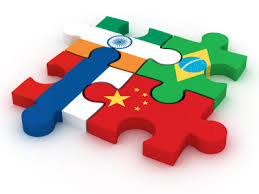By Anuchit Nguyen and Stephen Gunnion - Oct 27, 2012 2:07 AM GMT+0400
 Emerging-market stocks slid to a one-month low after South Korea’s economic growth slowed to the least since 2009 and earnings from China Unicom (Hong Kong) Ltd. to Kia Motors Corp. (000270) trailed analysts’ estimates.
Emerging-market stocks slid to a one-month low after South Korea’s economic growth slowed to the least since 2009 and earnings from China Unicom (Hong Kong) Ltd. to Kia Motors Corp. (000270) trailed analysts’ estimates.
The MSCI Emerging Markets Index (MXEF) dropped 0.8 percent to 990.70 in New York, the weakest close since Sept. 26. The gauge lost 1.5 percent this week, the most since the end of August. Information technology and financial stocks led today’s slide, and Samsung Engineering Co. was the biggest decliner after reporting that third-quarter operating profit fell. China Unicom sank after reporting net income for the same quarter that missed analysts’ forecasts. Banco Santander Brasil SA fell to an 11- month low.
South Korea’s gross domestic product expanded 1.6 percent in the three months through September from a year earlier, the slowest pace in three years and below the median economist estimate of 1.7 percent. More than 58 percent of companies in the MSCI Index that reported quarterly earnings this month have trailed analysts’ estimates, according to data compiled by Bloomberg, as the European debt crisis saps global demand.
“Markets are vulnerable to any negative news flow at the moment and some corporate earnings haven’t been great,” Michelle Pingo-de Abreu, an analyst at Johannesburg-based Nedbank Capital, said by phone.
The iShares MSCI Emerging Markets Index exchange-traded fund slipped 0.7 percent to $41.21 in New York.
Fund Inflows
The MSCI emerging markets index has declined 26 percent from its all-time high on Oct. 29, 2007. The gauge was valued at 18 times reported earnings at the peak, a 10 percent premium versus the MSCI World Index (MXWO) of advanced-nation shares. The emerging measure now trades for 12.3 times profit, a 23 percent discount versus the developed-country index, according to data compiled by Bloomberg.
Emerging-market equity funds took in $2.6 billion in the week to Oct. 24, a seventh straight week of gains, Citigroup Inc.’s Markus Rosgen wrote in client note today, citing data from Cambridge, Massachusetts-based research firm EPFR Global.
China’s yuan rose to the strongest level in 19 years in Shanghai on speculation policy makers will allow more appreciation. The Russian ruble dropped to the weakest price since Oct. 23 versus the dollar.
Russia’s Micex Index fell 0.9 percent for a fourth day of losses. A 4.8 percent slump in investment company AFK Sistema led the decline.
Bovespa Slumps
Brazil’s Bovespa (IBOV) gauge dropped 1 percent, extending its second straight weekly loss to 2.8 percent. Polish, Hungarian and Czech stocks also slid.
China’s Shanghai Composite Index (SHCOMP) slipped 1.7 percent, the biggest drop in five weeks. South Korea’s Kospi index slumped 1.7 percent, the most in seven weeks. Taiwan’sTaiex Index (TWSE) lost 1.8 percent to a three-month low, while the BSE India Sensitive Index (SENSEX) fell 0.7 percent. Stock markets in Indonesia, Malaysia, the Philippines and Turkey are closed for public holidays.
Kia Motors lost 5.6 percent in Seoul, the largest decline since May 18. Net income in the third quarter rose 28 percent to 829.5 billion won ($756 million). That trailed the 974.6 billion won average of 28 analyst estimates compiled by Bloomberg.
China Unicom
Santander Brasil, the local unit of Spain’s biggest bank, retreated 2.8 percent after reporting lower-than-forecast third- quarter profit. The Sao Paulo-based bank’s net income attributable to shareholders was 1.46 billion reais ($720 million) in the third quarter, compared with a 1.52 billion-real average estimate of five analysts surveyed by Bloomberg.
China Unicom, the nation’s second-largest mobile-phone company, posted the biggest slump since April 2009 in Hong Kong and its American depositary receipts fell 3.3 percent in U.S. trading. Third-quarter net income for the Hong Kong-based company rose 27 percent to 2.02 billion yuan ($324 million). The result, derived from nine-month earnings reported by China Unicom, compares with the 2.21 billion-yuan median estimate in a Bloomberg survey of analysts.
“Investors have big concerns about the global economic slowdown,” Kasem Prunratanamala, head of research at CIMB Securities (Thailand) Co. in Bangkok, said by phone today. “Earnings of most large companies are a bit disappointing. The weak economy and consumption will continue to give companies a tough time.”
Lower Than Forecast
Samsung Electronics Co. (005930), the world’s biggest maker of TVs and mobile phones, dropped 2.7 percent after saying competition will intensify and Apple Inc. announced a lower-than expected earnings forecast. Samsung Engineering tumbled 7.6 percent after its profit drop spurred Hyundai Securities and KTB Securities to downgrade the stock.
The extra yield investors demand to own emerging-market debt over U.S. Treasuries jumped 10 basis points, or 0.10 percentage point, to 286 basis points, according to JPMorgan Chase & Co.’s EMBI Global Index.
To contact the reporters on this story: Anuchit Nguyen in Bangkok at anguyen@bloomberg.net; Stephen Gunnion in Johannesburg at sgunnion@bloomberg.net
To contact the editors responsible for this story: Emma O’Brien at eobrien6@bloomberg.net; Vernon Wessels at vwessels@bloomberg.net